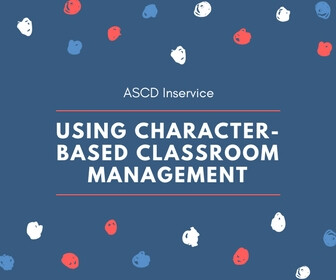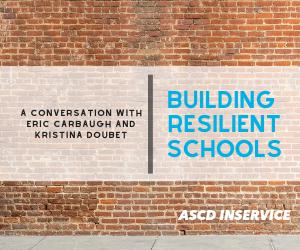Music is a powerful tool that offers profound benefits for student well-being in the classroom and beyond. Whether integrated into formal music education or woven into various subjects, music provides opportunities for students to express themselves, build connections with others, and learn more about the world around them.
In this digital age where academic pressures and social media stressors weigh heavily on young minds, fostering mental health among K-12 students has never been more crucial. Music is one powerful yet often underappreciated tool for this, especially music listening.
Ideally, music should be woven into the school day, not only by offering multiple options for music classes (general music and different ensemble offerings) but also by applying music for various academic and nonacademic purposes in general education classrooms. When music is present throughout the day and across subject areas, students have more opportunities for social, emotional, and academic success. Experiences of listening to and engaging with music in school can enhance students’ overall mental health, fostering five specific growth areas: emotional self-regulation, social integration and belonging, identity formation and confidence, global citizenship and open-mindedness, and creative thinking and optimism about the future.

Music Workshop's Founder, Amy Richter, teaches Music Workshop to Raleigh Hills Elementary School students.
1. Emotional Self-Regulation
Music has a unique propensity to help us safely experience and express feelings. For students, learning to engage with music can be an opportunity to develop emotional self-regulation. By communicating their feelings through instruments, singing, or even just listening to music, students learn to choose music that meets their emotional needs. Over time, this helps them navigate difficult feelings and manage distress. For example, research shows that music can alleviate stress and anxiety physiologically (reducing heart rate, blood pressure, and stress-related hormones) and psychologically (reducing nervousness, feelings of worry, and restlessness). It can also have energizing effects that improve motivation and physical strength.
Music has a unique propensity to help us safely experience and express feelings.
Neurologically, as children experience different emotions through music, especially music that soothes their distress, positive attachment hormones like dopamine and oxytocin become more regularly produced, which fosters continued emotional and social health even beyond school age. As students grow up, educators can help guide students’ music listening choices to target challenging emotions and alleviate sadness, anxiousness, anger, and grief, as well as magnify joy, excitement, and courage. Music education can therefore teach students to identify and harness their emotional states, leading to improved resilience and emotional intelligence, ultimately helping them become more emotionally regulated as adults.
2. Social Integration and Belonging
Communal music ensembles like choir and band cultivate a sense of belonging and teamwork. Participating in group music activities can help students build strong social connections and foster a supportive community. Through these activities, they meet others with similar interests and learn to reach collective goals. Additionally, with the teacher’s guidance, they develop problem-solving skills to prepare for performances or in-class lessons. Learning to play and sing music teaches students to identify what in the music needs further honing and how to accomplish that musical goal. This kind of problem-solving, without shame or judgment, can then carry into other parts of a student’s life where they see opportunities for growth and feel capable of success because they are used to creative trial and error with positive outcomes. Participatory music engagement has been shown to facilitate social connections, while music education programs can develop students’ feelings of school connectedness. This is especially beneficial for students who struggle with social interactions, as it provides a structured and collaborative setting where they can thrive.
Even without formal ensemble experiences, both participatory music-making and music-listening can help youth build social relatedness to feel a sense of belonging in a group, connection with others, and understanding of others’ thoughts. Through shared musical experiences like creating song playlists together, learning popular dances, or singing in harmony with others, students learn essential components of social integration, such as the value of cooperation, empathy, and mutual respect.
3. Identity Formation and Confidence
Music allows students to explore and express their unique identities through the artists they choose to listen to. Engaging with different genres and styles of music enables students to discover their preferences and develop a sense of self, which can make a significant difference for students who may not feel like they have control over other areas in their lives. Music can be a valuable resource for identity construction throughout adolescence, serving as a means for youth to reflect on and validate their personalities, bridge the transition from youth to adulthood, explore facets of identity such as gender and sexuality, and understand personal identity in social and cultural contexts.
Music can be a valuable resource for identity construction throughout adolescence.
Additionally, mastering an instrument or performing can be a significant confidence booster for many students. The process of learning music involves setting personal goals, practicing, and achieving milestones, which builds self-esteem and a growth mindset. In fact, students who participate in music education score higher in key measures of positive youth development, including positive views of the self and independent decision-making skills. Moreover, music provides a safe space for students to explore their creativity and individuality, reinforcing their personal identity.
4. Global Citizenship and Open-Mindedness
In our interconnected world, understanding and appreciating cultural diversity is paramount. Music, as a global and evolutionary practice, exposes students to a wide array of cultural expressions and traditions. Students may identify with these practices as part of their own experiences or as an opportunity to learn about others. By studying music from different genres and cultures, students can gain insight into the lives and perspectives of people from around the world. This kind of cultural literacy also fosters open-mindedness and global citizenship.
Music engagement has been shown to promote intercultural understanding, nurturing benefits such as improved ethnocultural empathy and tolerance, feelings of social connection, and reduced implicit bias. Learning about diverse musical traditions encourages students to appreciate and celebrate differences, promoting a more inclusive and empathetic worldview.
5. Creative Thinking and Optimism About the Future
Music education inherently promotes creative thinking. It challenges students to innovate, improvise, and think outside the box. Whether writing a song, interpreting someone else’s song, or experimenting with sounds, music nurtures a creative mindset and offers the ability to explore and express individuality. Once begun, this creativity is not limited to music but spills over into other academic and personal areas, fostering problem-solving skills and intellectual curiosity.
Music nurtures a creative mindset and offers the ability to explore and express individuality.
This cultivation of creativity also contributes to a sense of optimism, as the joy and satisfaction derived from musical achievements can inspire a positive outlook on the future. Indeed, students who started music education before the age of 8 were found to be more hopeful about the future as it relates to interpersonal relationships, safety, and health. When students see the tangible results of their creative efforts, they build confidence in their unique abilities and feel hope as they continue to try new things.
Music and Mental Health
The integration of music in K-12 education is a multifaceted tool that significantly enhances student mental health. As educators, parents, and policymakers, recognizing and supporting the role of music in education can pave the way for healthier, happier, and more well-rounded students who can exercise control over their own development and hone their sense of identity. In a world where the mental health of young people is increasingly at risk, music stands out as a powerful ally in nurturing resilient and optimistic individuals.





